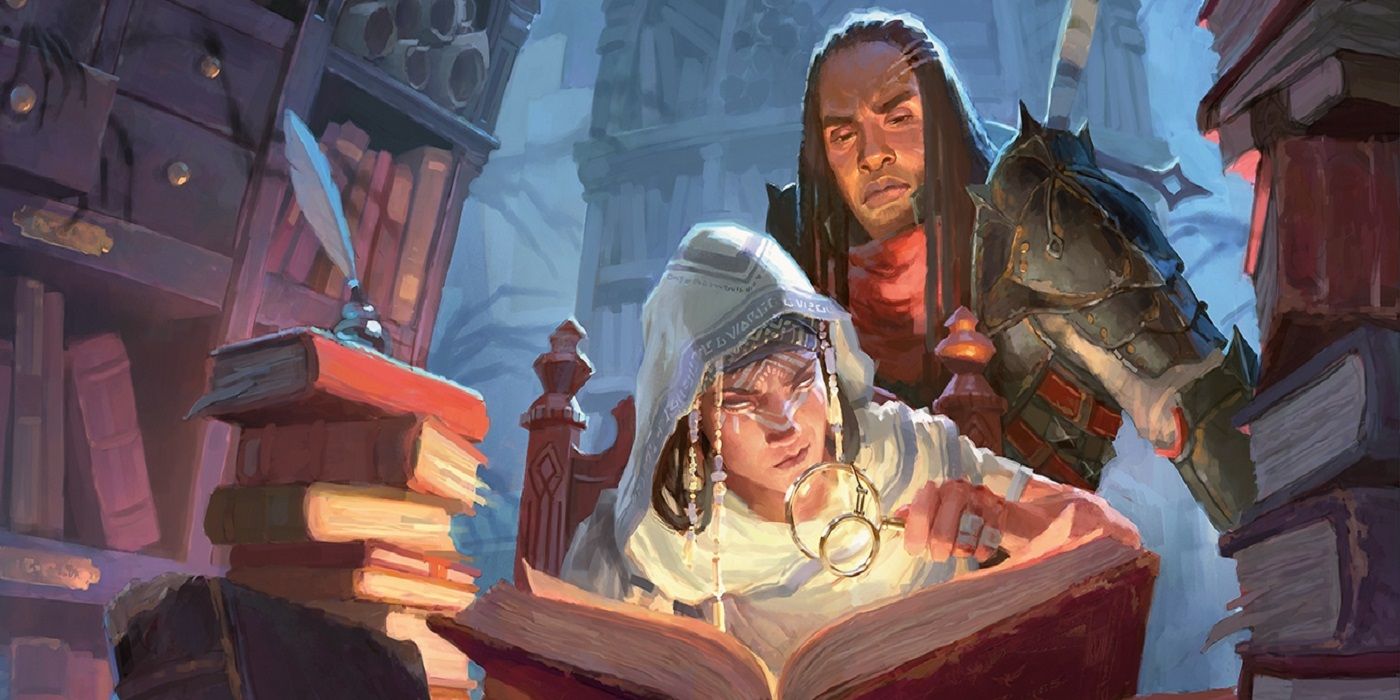Gathering information is an ongoing task when playing Dungeons & Dragons. Whether the party is attempting to collect information about their next objective, or they are simply trying to learn where the inn is located, these puzzles guide the story and decide the outcomes of almost every element of a campaign. While information is available in multitudes throughout towns and kingdoms, many Dungeon Masters and players alike rely on the familiar space of a tavern in Dungeons & Dragons to disclose plot-sensitive information, when there are plenty of other options more exciting for gameplay.
Click the button below to start this article in quick view.
The tavern is an easy location in Dungeons & Dragons. It is a catch-all for a town’s inhabitants, putting the right people in the right place at the right time. It is also a resting location for travelers and Bards, and giving a party needed information in a few choice lines from a drunk NPC or a musical myth can be quick and painless. Despite its convenience, however, relying on a tavern’s inhabitants for guidance can accidentally discourage the party from exploring the location for the same information. It can also potentially take away from unique D&D roleplay opportunities, or interesting encounters.
Instead of a tavern, players could end up at a local church or library. Both locations in D&D kingdoms and towns often hold information about the area’s history, struggles, and mythology. If the Dungeons & Dragons party is hunting a dragon to the north of a small mountain town, they could end up finding a book about the dragon’s oppression on the town in the library, or hear about how the beast terrorizes the town from a priest. Both encounters also allow players to interact with potentially useful D&D NPCs, like a knowledgeable librarian or Paladin.
D&D Marketplaces Are A Good Place To Find Information
An excellent location to roll a Perception or Investigation check is a local town market. The D&D party can easily disguise themselves as shoppers, asking about the town casually as they purchase potions or supplies. They can also listen in on the conversation of other townsfolk in the area, potentially picking up on any unusual instances happening close by. It is even possible the party could witness a shady deal, or a conflict, when browsing, giving them the chance to intervene or wait and watch what events unfold.
Seeking information in the wrong D&D locations can lead to opportunities for interesting conflict. If the party attempts to learn about a city’s corrupt politician while investigating the local bank, they could end up arrested, but in doing so learn a good deal of information about the town from other inmates or even the town’s local law enforcement. Searching for information in a Dungeons & Dragons campaign can be woven into active events in a story and can help events flow more seamlessly as players move from one objective to the next.
About The Author
